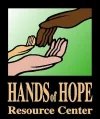WORLD ELDER ABUSE AWARENESS DAY IS ON JUNE 15
World Elder Abuse Awareness Day, or WEAAD, is an annual initiative launched on June 15, 2006, by the International Network for the Prevention of Elder Abuse and the World Health Organization. In its 66/127 resolution, the United Nations General Assembly designated that date as World Elder Abuse Awareness Day, a day in which the entire world voices its opposition to any form of abuse of the older generation.
WEAAD aims to provide an opportunity for communities around the world to promote a better understanding of the abuse older people suffer by raising awareness of the cultural, social, economic, and demographic processes affecting them. Elder abuse is one of the least investigated types of violence and does not get addressed in national action plans as frequently as other key social issues.
The UN International Plan of Action described elder abuse as a public health and human rights issue. Globally we have an aging population, with the number of older people in the world expected to be 1.4 billion by 2030. Research suggests that 4 to 6 percent of the elderly suffer from some kind of abuse, most of which goes unreported. This day is to make sure we remain focused on our elders, ensuring they lead a life of high quality and dignity.
- FACTS ABOUT ELDER ABUSE
- It happens mostly at home. Elder abuse instances happen mostly in the home where the senior lives.
- 1 in every 10 is the number of elderly adults who experience some form of abuse in their lifetime.
- Finances are at the highest risk. The most common form of abuse is financial exploitation and extortion.
- 9 out of 10 elder abusers are relatives. In around 90% of elder abuse and neglect incidents, the perpetrator is a family member.
- Many go unreported. Only one of every six instances of elder abuse is reported.
HOW DOES A PERSON MAKE AN ELDER ABUSE REPORT?
If an older adult is in immediate danger, call 911. Anyone who suspects that an older adult is being mistreated should contact the police or a local anti-abuse organization. You can also visit https://ncea.acl.gov/ for the National Center on Elder Abuse (NCEA) where you will find the latest information and resources on research, training, policy, and best practices on preventing and responding to elder mistreatment.
